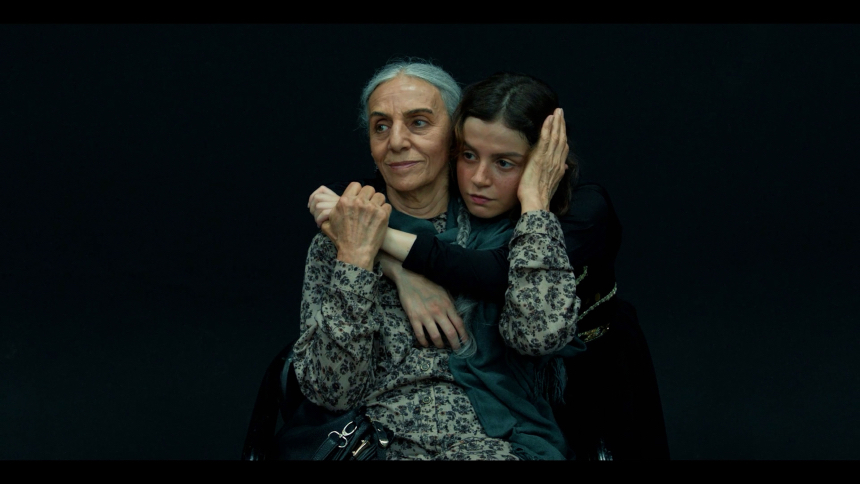Venice 2024 Review: THE WITNESS Sees a Family Drama Become Political in Iranian Minimalist Thriller
Iranian filmmaker Nader Saeivar crafts a quietly intense narrative that intertwines personal and political conflicts, offering an exploration of power, repression, and resistance within the framework of contemporary Iranian society.

Iranian filmmaker Nader Saeivar delves into the intricacies of power, suppression, and defiance in his third film The Witness, exploring these themes through the story of a retired dance teacher confronting institutionalized crime in contemporary Iran. Rooted in the political context of modern Iran, the film examines the personal cost of standing up to an oppressive regime that intrudes on intimate family dynamics.
Saeivar begins the film by establishing the relationships between Tarlan (Maryam Bobani), a retired dance teacher, her foster daughter Zara (Hana Kamkar), and Zara's daughter Ghazal (Ghazal Shojaei). Zara, a dance instructor running her own studio, belongs to a younger generation, while Tarlan’s experiences stretch back to the 1978 Iranian Revolution.
A politically active figure, Tarlan was once imprisoned for her outspoken views and remains engaged in the teachers' union. She also tries to secure her imprisoned son’s release.
The film centers on the growing tension between Tarlan and Zara's husband, Solat, who holds an unspecified government position. Though initially cordial with Tarlan, Solat becomes increasingly vocal about his disapproval of Zara's dancing, which she shares online. He pressures her to abandon her career and assume the role of a traditional housewife.
Meanwhile, Zara begins to appear with bruises, and Tarlan finds herself caught between supporting Zara and managing Solat's complaints. The situation escalates when Solat discloses not only his grievances but also Zara's violent retaliation with a knife.
As Tarlan navigates Zara and Solat’s family turmoil, she is also dealing with union matters, her son’s release from prison—which Solat facilitates—and an infestation of mice in her apartment (which is a more of a political metaphor). The film takes a sharp turn when Zara is found dead. This pivotal moment transforms The Witness from a domestic abuse drama into a larger narrative that blends elements of a police procedural, crime thriller, and political commentary.
Known for his understated storytelling, Saeivar, who has collaborated with Jafar Panahi on his previous works and continues on The Witness, employs his signature style in his latest drama. Like his previous work, including the 2018 film 3 Faces, Saeivar uses non-professional actors, minimalistic settings, and natural dialogue to explore the socio-political landscape of Iran. In The Witness, he continues to focus on gender roles and dissent, particularly examining the state’s complicity in personal violence.
The shift from family drama to a political thriller doesn’t disrupt Saeivar’s restrained approach. The cinematography, by Rouzbeh Raiga, avoids melodrama, often lingering on mundane settings that emphasize the characters’ isolation.
Saeivar uses space and silence to build tension, particularly in scenes where Tarlan confronts the authorities over Zara’s death. While Tarlan accuses Solat of murder, other women in Zara's family choose to remain silent, unwilling to confront the reality of the crime and the culprit.
Tarlan’s refusal to stay quiet, even after Solat’s influence helped free her son, reflects a larger story about the multi-generational fight for dignity and rights among Iranian women. Saeivar’s choice to center the story on an older character, rather than a younger, more rebellious figure, suggests that the struggle for freedom in Iran is not confined to the youth but is a long, painful battle carried on through the decades.
Much like Panahi's films, The Witness presents Iran’s social and moral crises through a personal lens. It operates as a thriller without conventional genre tropes, prioritizing internal conflict and the quiet dread of living under repression. Saeivar’s careful, deliberate style ensures that the film remains both a critique of state-sanctioned violence and a reflection on personal integrity.
The Witness won the Armani Beauty Audience Award at the 81st edition of the Venice Film Festival.
Shahed (The Witness)
Director(s)
- Nader Saeivar
Writer(s)
- Jafar Panahi
- Nader Saeivar
Cast
- Maryam Boubani
- Nader Naderpour
- Abbas Imani







